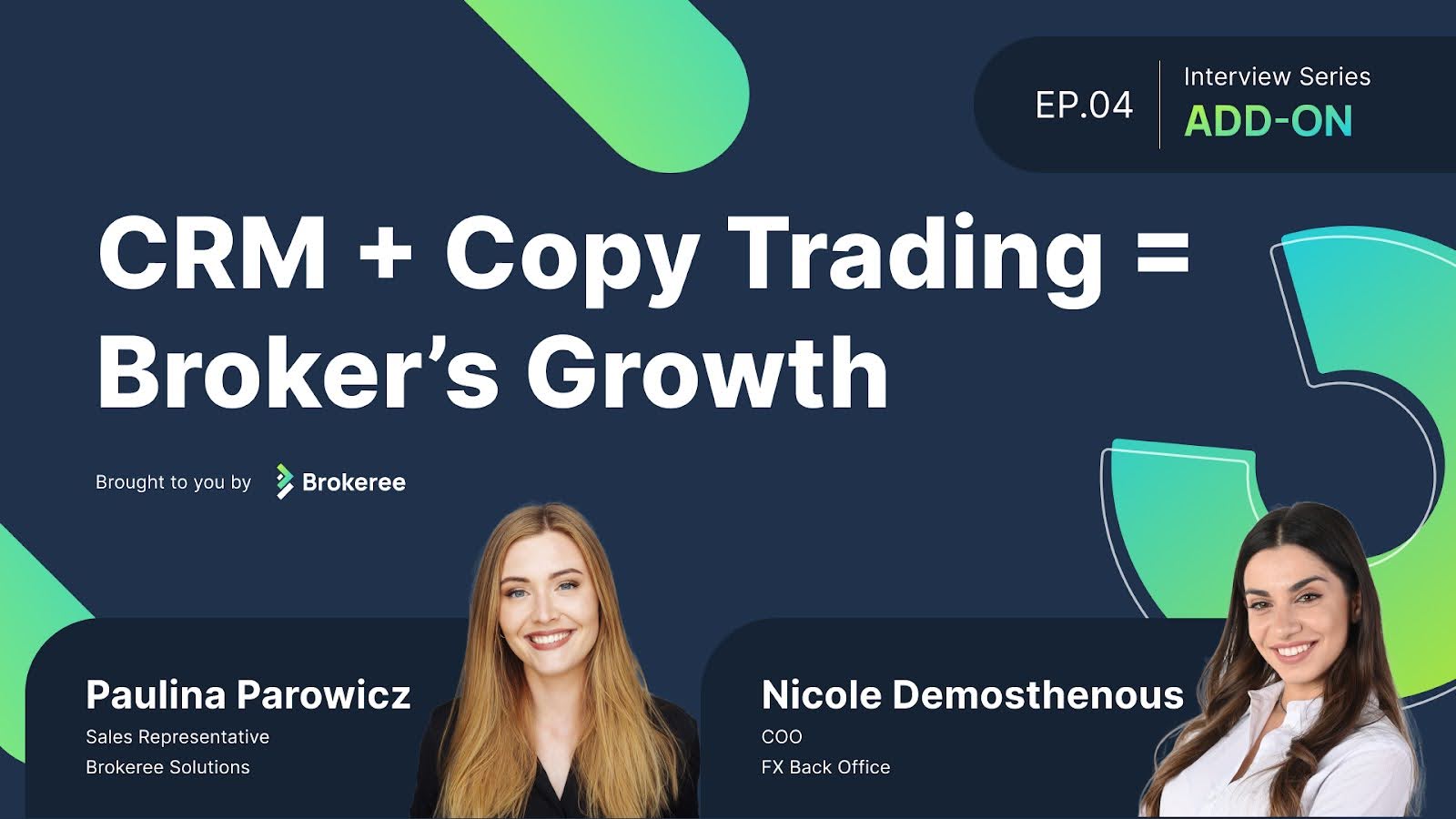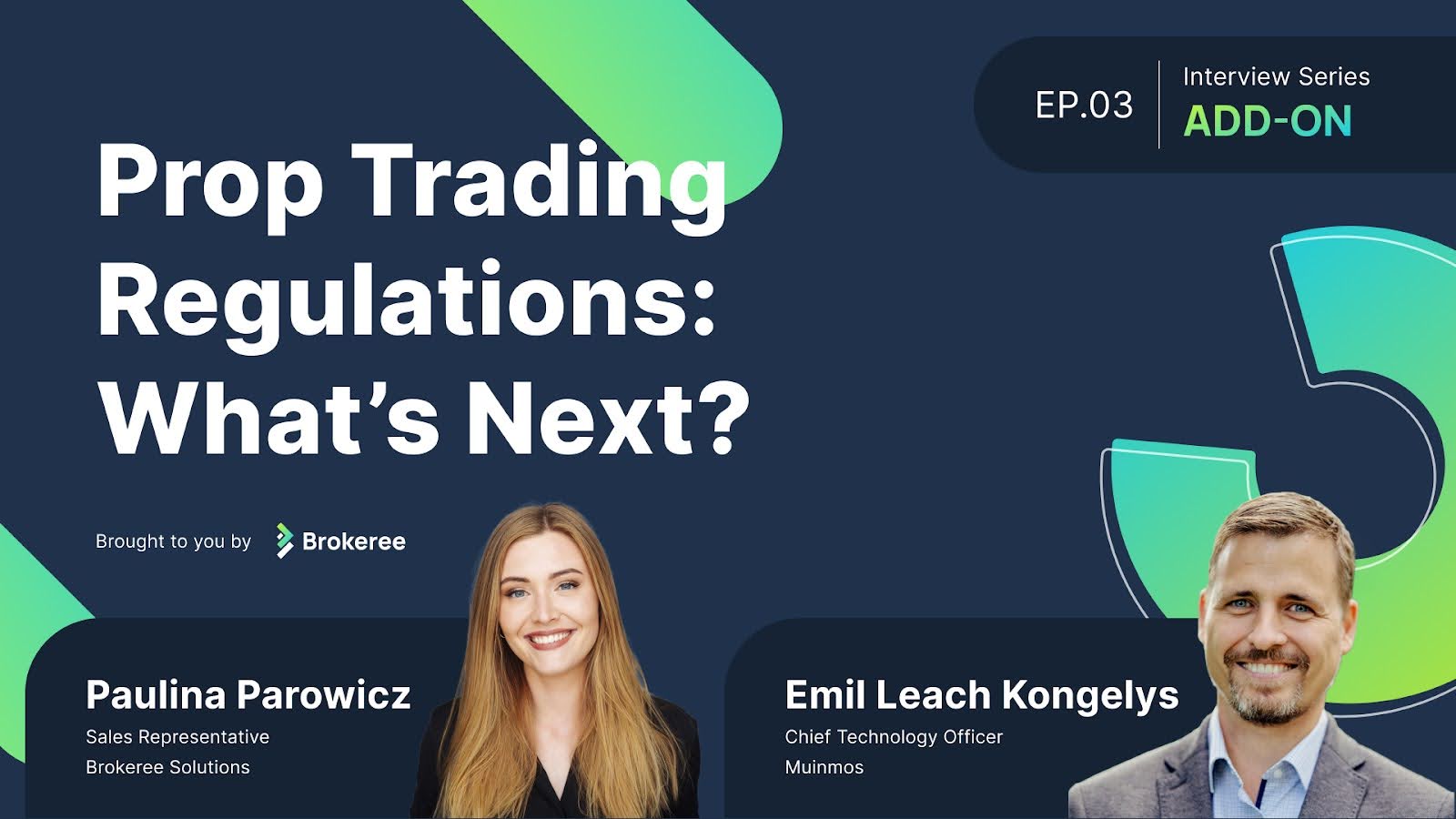In the fourth episode of the Brokeree Add-on Series, we explored the crucial role of CRM systems as well as copy trading in shaping modern and up-to-date brokerages.
In this episode, Paulina Parowicz (Brokeree Solutions) and Nicole Demosthenous (FXBO) discuss how a robust CRM can enhance broker operations, improve client relationships, and facilitate copy trading. The conversation highlights common mistakes brokers make when integrating CRM systems, key features to look for, and the importance of innovation and collaboration between technology providers. They also delve into future trends and strategies for customer retention, emphasizing the need for seamless integration and effective communication.
In these extended notes, we have summarised the key messages and insights shared by N.Demosthenous regarding CRM solutions in brokerages.
Read more below, or for the full conversation, head to our YouTube Channel.
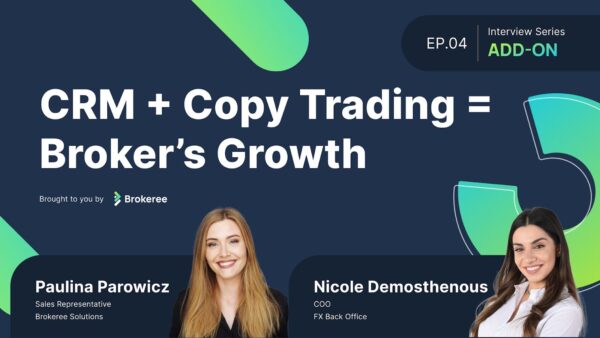
Why is a forex-specific CRM so important compared to a general CRM?
The discussion emphasized that a generic CRM cannot meet the highly specialized needs of forex brokers. A forex CRM centralizes all broker-client data while integrating with trading platforms, payment providers, and compliance systems. This setup allows brokers to:
- Automate tasks such as KYC checks,
- Gain detailed insights from trading activity,
- Ensure compliance with strict regulations.
Such features go beyond standard CRMs, making them indispensable for brokers aiming to provide smooth onboarding and effective client management.
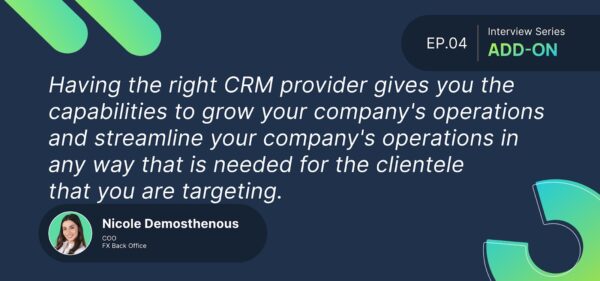
How does a robust CRM system enhance broker operations and client relationships?
A strong CRM creates a win-win for both brokers and traders. On the broker’s side, it streamlines operations, automates repetitive tasks, and consolidates all client activity in one place. For traders, it enhances satisfaction by offering:
- 24/7 support,
- Features like copy trading,
- A secure and transparent client area.
When traders feel supported and their needs are addressed, they’re less likely to look for alternatives. Ultimately, a robust CRM becomes a competitive advantage for client retention.
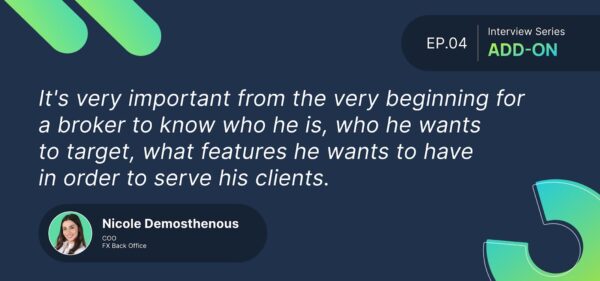
What are the most common mistakes brokers make when choosing a CRM?
A recurring mistake is not knowing what the business really needs. Many brokers rush into choosing a system that is cheap, fast to deploy, or “good enough” at the start. But later, they discover it lacks the customizations or integrations required for scaling.
The conversation highlighted how overlooking factors like scalability, security, and long-term flexibility could eventually backfire and lead to potentially disrupted client relationships due to, for example, migration.
The bottom line: define business goals, target markets, and must-have features before choosing any service or tech provider.
What key features should brokers look for when selecting a CRM?
The conversation identified several features to look for when choosing a CRM provider that would fit, such as:
- Customization: tailoring onboarding flows, client portals, and even unique offerings like branded coins.
- Integration capabilities: connecting with regional PSPs, trading platforms, and third-party tools.
- Automation: speeding up onboarding, verification, and reporting.
- Data insights and reporting: spotting client trends and opportunities.
- Mobile accessibility: since most clients now operate from smartphones.
- 24/7 support: essential in a global trading environment.
A CRM that offers these capabilities helps brokers differentiate themselves and adapt to changing client expectations.
Why is copy trading such an important feature?
Copy trading was highlighted as a powerful tool for both beginners and time-constrained traders. Beginners benefit by following expert traders without needing deep market knowledge, while experienced traders who lack time can continue participating in the markets without constant monitoring. Additionally, copy trading enables diversification — traders can spread their investments across different markets (forex, crypto, indices).
For brokers, offering wisely implemented copy trading services creates a client journey that drives loyalty and long-term retention.
What role does CRM play in copy trading?
The CRM acts as the central hub, connecting brokers, traders, and copy trading providers. By integrating CRM into copy trading, both brokers and clients can manage everything from a single interface, avoiding confusion or fragmented experiences.
For brokers, CRM integration also provides valuable data, including the number of clients who use copy trading, the strategies they follow, and how this affects their profitability. This dual role — client convenience and broker insight — makes CRM integration into copy trading vital.
What are the challenges in integrating copy trading with CRM?
Integration is not a one-time task but an ongoing collaboration between providers. The initial setup requires careful alignment, but challenges often appear when updates occur — for example, if one provider changes its API or adds new functionality. Without clear communication, brokers can experience service disruptions. The key to overcoming this challenge is continuous coordination and transparency between involved stakeholders.
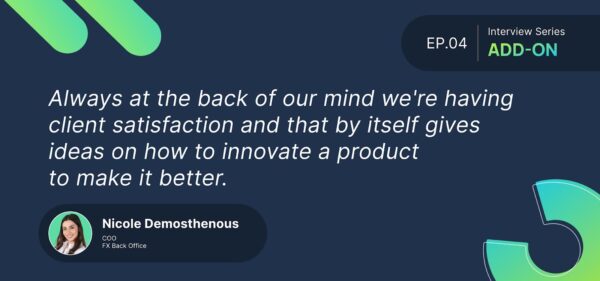
When should CRM systems innovate, and when should they not?
It was stressed that innovation is a default and never-ending path. Most innovations stem from client feedback and practical needs, as brokers are the ones directly in touch with traders. By listening to broker requests, CRM providers, such as FXBO, ensure solutions remain relevant and user-driven. In parallel, market and regulatory trends push continuous updates, ensuring systems remain compliant and competitive. In short, innovation should never stop, but it should always be meaningful.
How important is collaboration between service providers, brokers, and traders?
The conversation underlined that successful brokerages are built on collaboration. When service providers communicate directly with each other, brokers are not left “stuck in the middle.” A transparent flow of information across technology providers, brokers, and ultimately traders helps ensure smooth operations and higher client satisfaction.
Collaboration isn’t just nice-to-have — it’s the foundation of sustainable brokerage growth.
What does the future of CRM and copy trading look like?
This conversation indicated that the outlook for CRM and copy trading points towards:
- Flexibility and customization to differentiate broker offerings.
- Seamless integrations to ensure traders get frictionless experiences.
- Security and compliance as top priorities, especially with growing reliance on API integrations.
- Collaborative innovation, where CRM and copy trading providers share client feedback and co-develop solutions.
The future trend is clear: technology and service providers who foster collaboration and adaptability will shape the next generation of brokerage services.
How can CRM help with customer retention and lifetime value?
Retention was described as the end goal of every brokerage, and CRM plays a central role in achieving it. Well-implemented CRM systems support retention by:
- Offering real-time support and fast issue resolution.
- Providing educational resources such as economic calendars and newsletters.
- Running loyalty programs like contests, rewards, or points systems to keep clients engaged.
- Allowing personalization of the trading experience.
These features build trust and strengthen client relationships, ensuring traders remain loyal for the long term.
Do changes in copy trading impact CRM?
Both tools serve the same end user, any innovation in copy trading naturally requires adjustments in CRM. Therefore, yes, changes in one affect the other in one way or another. For example, new strategies or features in copy trading need to be mirrored in CRM integrations to maintain seamless user journeys. The two systems evolve hand in hand.
In conclusion:
- Forex-specific CRMs are essential, offering integrations, compliance tools, and automation that general CRMs cannot.
- Choosing the wrong CRM often stems from rushing decisions without mapping business needs. Clarity upfront saves costly mistakes later.
- Customization, mobile access, integrations, and automation are the most valuable CRM features for brokers.
- Copy trading attracts both beginners and busy traders, and CRM ensures it’s easy to manage and monitor.
- Strong collaboration between service providers prevents disruptions and drives innovation.
- The future of brokerage technology is about flexibility, compliance, and seamless trader experiences.
- Ultimately, CRM is not just a tool — it’s a strategic driver of client trust, retention, and lifetime value.
For more insights, watch the full episode of the Brokeree Add-On Interview Series with Nicole Demosthenous, COO at FXBO
Curious to learn more?
Don’t forget to subscribe to our channel for more insights on the latest fintech innovations. Watch the full episode of Brokeree’s Add-on Series on YouTube for the complete conversation, real-world examples, and expert tips!
About the guest: Nicole Demosthenous, COO | FXBO
Nicole Demosthenous is the Chief Operating Officer at FXBO, leading operations and driving innovation to strengthen the company’s position in the Forex industry. Since joining in 2020, she has streamlined processes and fostered a culture of continuous improvement. Nicole values strong client relationships, ensuring their needs stay central to FXBO’s success.
